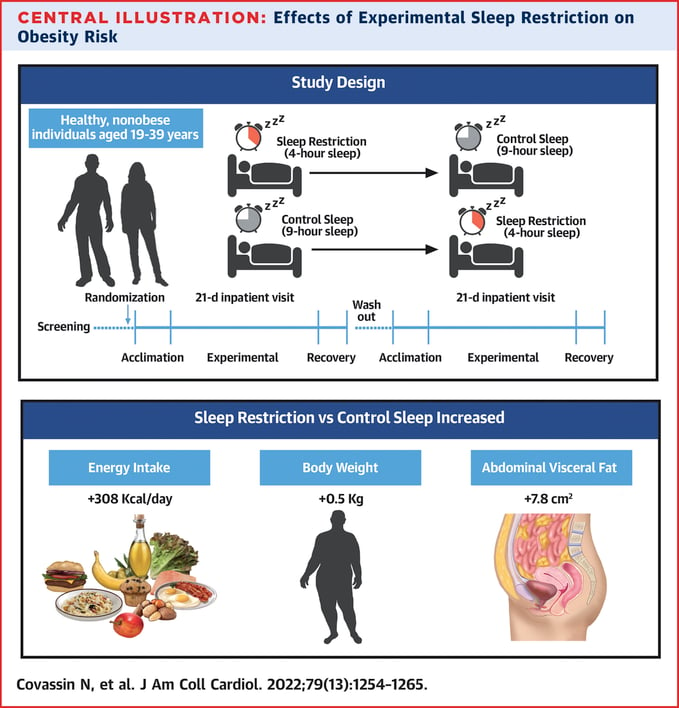In a previous article of this series on the Six Pillars of Lifestyle Medicine, we touched on how sleep affects appetite with Dr. Tro Kalayjian of Dr. Tro’s Medical Weight Loss and Direct Primary Care, so we invited him back to provide additional context on the importance of sleep for sustainable positive health outcomes. When it comes to sleep both quality and quantity are essential for health. Your body needs to slow down, rest, recover, and heal, which is what happens when you sleep. For adults, 7-9 hours of sleep is ideal due to the phases of sleep in a single sleep cycle.
There are 4 phases that the brain moves through in a sleep cycle, which usually takes 1.5 to 2 hours to complete. The first three phases are non-REM or quiet phases of sleep. The first phase is the transition from wakefulness to sleep, where brain waves begin to slow down and your body follows suit (heart rate and breathing) with your muscles relaxing. In the second phase, your body temperature drops, and your consciousness takes a step back as you retreat from the external environment with your brain waves producing theta (5-8 Hz) or alpha (8-12 Hz) waves.
The most rejuvenating, restful sleep takes place when you are in the third phase, which is a deep sleep and your brain waves produce delta (2-5 Hz) waves. Delta waves are the slowest frequencies that the brain produces with less than 4 cycles per second. According to the National Library of Medicine, the science behind the function of sleep is not very well understood and there have been multiple theories, which include “memory integration and consolidation, neuronal homeostasis, and metabolic conservation.” Many of these processes and body repair occur during delta wave sleep, which usually lasts about 30 minutes.
“When you deprive delta wave sleep, you can actually induce seizures, migraines, [and] your accuracy with calculations and ability to focus goes down.” - Dr. Tro Kalayjian
To ensure that you have sufficient delta wave sleep, it is important to avoid excessive blue light that emits from computers, cell phones, fluorescent and LED lights. The reason for this is due to the photoreceptors in our eyes, which are active even when our eyes are closed. The neurons in the retina are stimulated by the frequency of light, particularly blue light and signals the suprachiasmatic nucleus (SCN) of the hypothalamus, which also controls our circadian rhythm to instruct your pineal gland to stop producing melatonin because it is “daytime.” Melatonin helps us fall asleep and stay asleep.
Establishing a bedtime routine, helps to fall asleep faster and get a good quality sleep, which is highly correlated with how many delta wave sleep cycles you have. Reading a book under a warm light is much better than falling asleep in front of the television. Dr. Tro recommends avoiding screen time at least one hour before bed. Sleeping in a dark, cool room helps you achieve sufficient delta wave sleep.

Meditation is also a great practice to help you get a better quality of sleep and reach delta wave sleep faster, so you can have more cycles of it, thus getting a more restful sleep. In fact, monks have successfully modulated to delta wave sleep while awake via meditation. Researchers confirmed through EEG scans that the brain waves of monks during meditation were at delta within minutes of their meditation. Delta waves are typically only seen during the third phase of sleep and it usually takes over an hour to reach.
The final phase of sleep is REM or rapid eye movement, which is when dreams occur. During this time, your brain is active and your breathing is faster, but your voluntary muscles are immobile, preventing you from physically acting out dreams.
The key to waking up and feeling rested is having a sufficient amount of sleep cycles usually 4-5, resulting in about 2-2.5 hours of delta wave sleep. Waking up outside of delta wave sleep is ideal as you are in a lighter sleep phase and your body is more prepared to come into wakefulness since your brain wave activity is in the alpha or beta states. Interestingly, if you wake up in the middle of delta wave sleep, you tend to feel tired and groggy even if you have had enough hours of sleep.
Sleep Deprivation
Consistent rest each day is critical to positive health outcomes, but if you don’t get enough sleep one night, napping the next day is a great way to correct sleep deprivation. An ideal nap is 1.5-2 hours, so that you can get to delta wave sleep and come out of it, provided that you’re able to fall asleep fairly quickly.
Common disruptions to sleep include sleep apnea or reflux, which reduce both quality and quantity of sleep. Sleep apnea is when the body struggles to get enough oxygen due to a constricted airway, which can be caused by congestion, swollen glands, extra fat tissue around the neck or an overly relaxed tongue, which is a muscle that gets weaker with age, blocking the airway. Your body’s stress response will become activated due to it not receiving adequate oxygen. Snoring happens because your body is trying to breathe in more to get sufficient oxygen while there are blockages.
“Sleep apnea is an epidemic and it’s associated with heart attacks, high blood pressure, [and] worsening diabetes.” - Dr. Tro Kalayjian
Sleep apnea can be prevented by losing weight (often the last 5-10 pounds), using a CPAP mask for oxygen or by changing sleep position. When lying back the tongue presses against the airway so laying down on your side often helps.
Another negative result of sleep deprivation is binge-eating, which increases the risk of obesity, as illustrated in the graphic below.

Sleep and Circadian Rhythm
Daylight savings is a huge disruption to our body’s natural circadian rhythm. Dr. Tro states that spring forward is more detrimental than fall back. Luckily, the Senate recently voted to put a stop to the twice annual changing of clocks. Therefore, after March 2023 spring forward there will no longer be a change in the time. We asked Dr. Tro, how is changing the time just one hour so disruptive? It turns out, the body releases stress hormones at a specific time, which is thrown off due to daylight savings. The body is used to sleeping at a certain time and waking at a certain time and an hour adjustment is akin to jetlag.
“There is a whole language that our body has, that we’re not attuned to. We don’t control our cortisol release that happens everyday. The light and our sleep habits control that.” - Dr. Tro Kalayjian
It is for this reason that having a regular sleep schedule is beneficial for good health. Dr. Tro states that shift workers who don’t have regular sleep schedules or overnight workers tend to have diabetes, hypertension, are more overweight and have worse mental health issues. Oftentimes, when these workers return to a more regular schedule that is attuned with the day they are able to reverse these health problems. There are ways to mitigate these health issues, such as blackout curtains to sleep during the day and getting some natural sunlight exposure alongside good nutrition and regular exercise. Light therapy can also be a remedy.
Exercise, Sleep and Mental Health
A lot of muscle rebuilding and repair takes place during sleep. Intensive exercise or endurance training or any type of exercise for that matter requires sufficient recovery, which includes restful sleep.
“Recovery is the name of the game for high level athletes, but it applies to all of us. You can't sit on your butt all day, go to the gym for an hour and then think three or four hours of sleep is going to work.” - Dr. Tro Kalayjian
Sleep deprivation hurts athletic and cognitive performance and causes insulin resistance, which is undesirable. Dr. Tro states that “the late Kobe Bryant, for example, was known to get somewhere between eight to nine hours of sleep.”
Insulin resistance occurs with lack of sleep because of the rise in stress hormones and blood sugar. The sustained arousal of the body requires a higher production of insulin to manage blood sugar effectively for energy. The continued spiking of blood sugar will eventually cross the body’s threshold resulting in pre-diabetes and then diabetes. Insulin resistance is the precursor to diabetes and according to Dr. Tro, it is usually diagnosed 10 years prior.
Mental health is closely tied to sleep and because of the rise of stress hormones associated with sleep deprivation, it leads to worse mental health issues, further negatively impacting depression, anxiety, and PTSD. On the flip side, increased quality and quantity of sleep improves mental health with studies showing better scores on depression, anxiety and PTSD symptoms as well as decreased migraines, headaches, and seizures.
Sleep is inextricably linked to overall health and cannot be sacrificed without detrimental negative health outcomes. Limiting screen time and establishing a regular schedule with a bed time routine is a good habit to maintain for achieving rejuvenating and restorative sleep.
Whether you're a clinician or a patient, you can help make direct primary care the standard of care. Learn more about DPC.
Sources:
Physiology, REM Sleep - National Library of Medicine
The 4 Stages of Sleep - Verywell Health
Effects of Experimental Sleep Restriction on Energy Intake, Energy Expenditure, and Visceral Obesity

